
When India and Pakistan talk peace at Saarc, the region begins to smile with expectations of better days to come. Prime Minister Yousaf Raza Gilani met with his counterpart Dr Manmohan Singh on the sidelines of the 17th Saarc summit in Maldives on November 10, and said things about relations with India that the opposition in Pakistan has pretended not to like; the BJP reacted the same way to Dr Singh’s description of Gilani as ‘a man of peace’.
Dr Singh was positive and pledged resolution of all outstanding issues. Gilani touched all the expected bases when he said: “We have discussed all core issues including Kashmir. We hope the next round will be more constructive, more positive and will open a new chapter in the history of both the countries”. The atmospherics were good because Pakistan had just awarded India Most Favoured Nation (MFN) status while India had endorsed Pakistan’s non-permanent membership of the UN Security Council, at the same time supporting Pakistan’s concessional trade with the European Union at the WTO.
The world appreciates progress in Pakistan-India relations while the oppositions in both countries find fault with it, backed by hostile TV anchors on both sides. The MFN status has been discussed on Pakistani channels — barring the few big ones — as if the PPP-led government has betrayed the nation. On the Indian side, politicians focused on Pakistan’s non-state actors carrying out terrorist activities in India and accused the ruling party of betraying the Indian people by letting Pakistan off the hook.
The media in Pakistan had low-quality discussions when politicians and some anchorpersons were allowed more airing than they deserved. A commentator on state-owned television actually said that granting MFN status was more important than India’s support at the EU and the UN, forgetting that by delaying this issue, Pakistan had seriously damaged itself in bilateral trade with India, languishing at around $1.5 billion on the basis of 2,000 items.
Some Pakistani anchors saw sinister conspiracies woven by the US behind Pakistan’s grant of transit rights to India’s trade with Afghanistan. Others simply did not know that free trade allowed negative lists for protection of industries when trade is plied between unequal partners. The transit route is actually at the root of the Pakistan-India breakthrough, which will free Saarc of the shackles of this bilateral vendetta. The old knee-jerk formula was repeated ad nauseam: first resolve the disputes — which actually means that India give up Kashmir and yield to Pakistan’s position on Siachen, Wullar Barrage and Sir Creek, etc.
On the Indian side, the more professional opinion was positive, telling India that the responsibility of moving Saarc forward was entirely India’s and that India would console the trading world’s opinion effectively if it took action to remove its non-tariff barriers. An economically successful state set in the middle of South Asia — with 70 per cent of South Asia’s territory, four-fifths of its GDP and three-fourths of its population — was advised by sensible Indian publicists to grasp the moment of thaw by the forelock.
The world has recognised two ways of achieving regional peace and progress. Either resolve the disputes first to facilitate trade, or front-load trade to allow consequent normalisation to resolve the disputes. It is shocking that most retired Pakistani diplomats, including an ex-foreign minister, kept focusing on the first option by expressing doubt about India’s intent to resolve disputes. They should have acknowledged that the first approach of front-loading disputes had not paid off and had retarded the progress of Saarc. For most TV anchors spreading gloom, the default position in South Asia is war which cannot be disturbed.
First of all, if Saarc is late in blooming, one must see it in perspective. It always takes long. And it takes fruitless conflict in the shape of wars to persuade the states to shift to trade. Saarc, founded in 1985, may still be doing better than Asean, which was set up in 1967 and plans to announce a ‘common market’ in 2015. South Asia has to move to its pledged Free Trade Area (Safta) to realise its potential of peace and prosperity.
Published in The Express Tribune, November 12th, 2011.
COMMENTS (6)
Comments are moderated and generally will be posted if they are on-topic and not abusive.
For more information, please see our Comments FAQ





















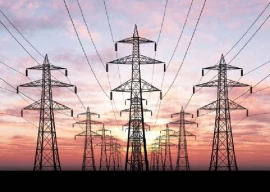

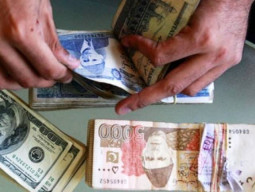










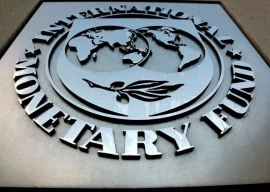
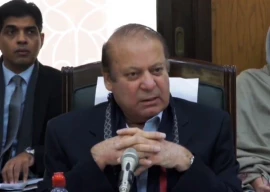


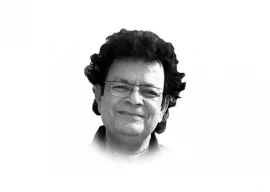
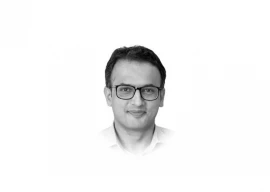


The mumbai episode and its subsequent literature is rightly receding into the background. Real issues like that of languishing Pakistanis in indian jails without due process cannot be ignored any longer. The recent report of even the indian SC lamenting this terror act upon hundreds, including 4 women is a sign that needs positive action. To make it 'even', the indians in Pakistani jails either need to be charged if they commited crimes or let go. Words and 'promises' won't make these peoples lives come back.
First of all they are not non state actors, they are supported by your ISI. And even if they are what is your Government doing!! lets not forget Mumbai in haste.
Let us hope that things will move forward and those vested in raising usual obstacle would fail, as already considerable damage has been done.
very intelligent article.. unfortunately it will fall on deaf ears. We are a bunch of brainwashed zombies caged in 1000 BC ...